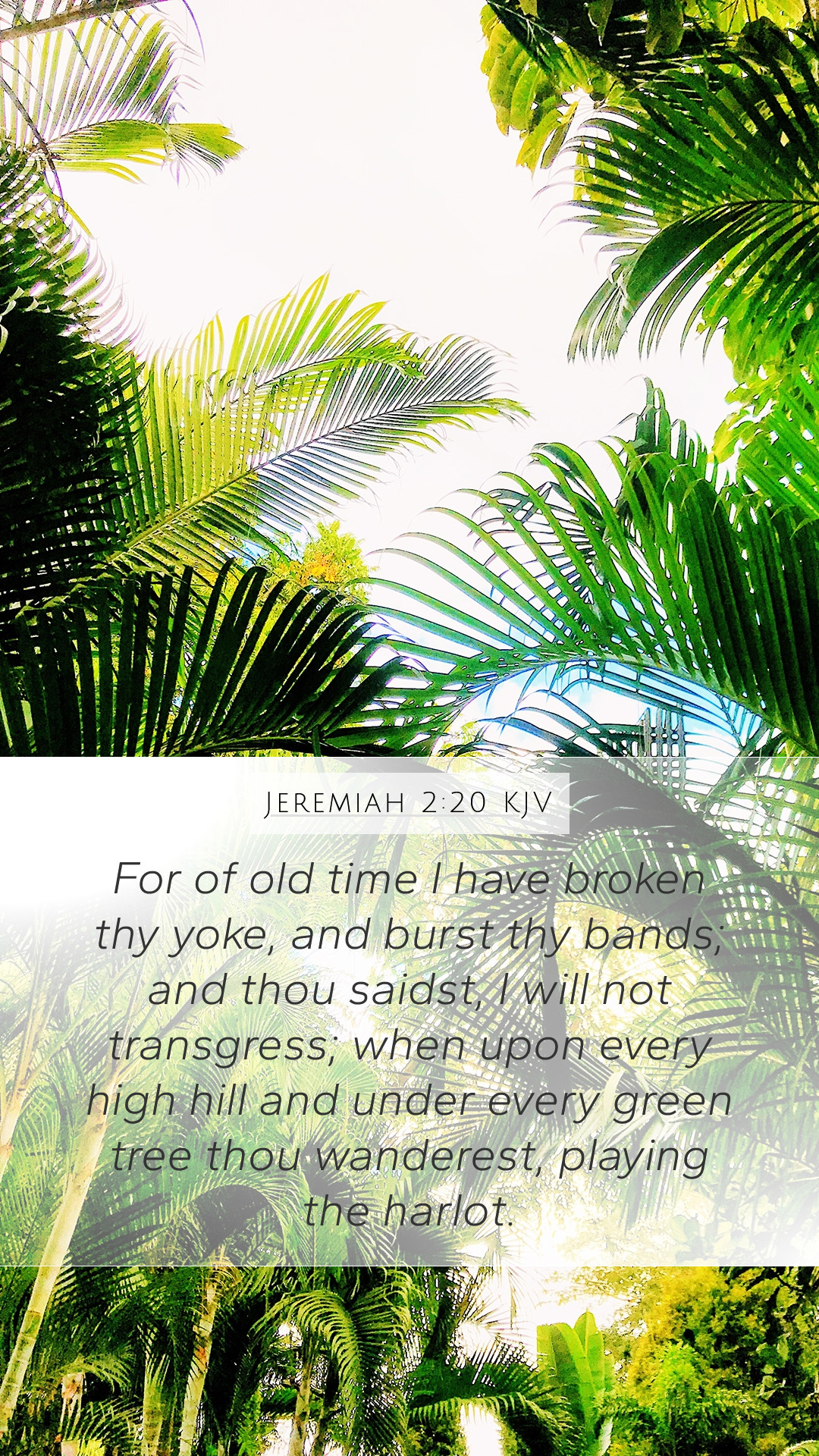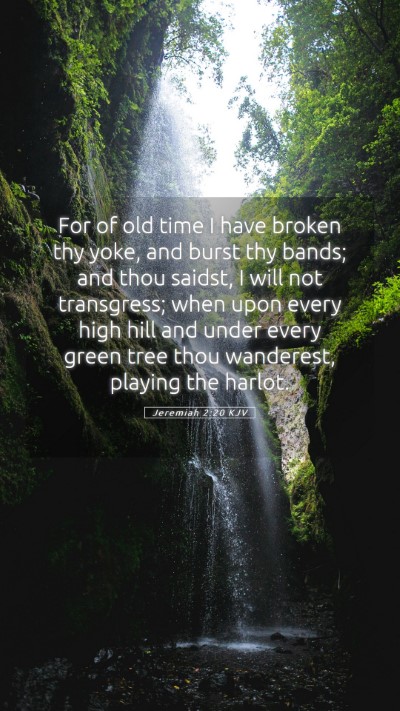Understanding Jeremiah 2:20
Jeremiah 2:20 states: "For of old time I have broken thy yoke, and burst thy bands; and thou saidst, I will not transgress; when upon every high hill and under every green tree thou wanderest, playing the harlot."
This verse showcases a powerful message of God's deliverance and the rebellion of His people. It serves as an example of how Scripture analysis can reveal deep insights into the spiritual condition of Israel during the time of Jeremiah, as well as the ongoing relevance of these themes today.
Bible Verse Meaning and Commentary
-
Matthew Henry emphasizes God's past actions, illustrating His role as the liberator who has drawn His people out of bondage. He discusses how the Israelites, despite their deliverance, have turned to idolatry and sin. This highlights the theme of divine grace versus human rebellion.
-
Albert Barnes notes the significance of the yoke being broken. He explains that this symbolizes the removal of oppressive burdens, allowing for spiritual freedom. Nevertheless, the Israelites' continued infidelity is akin to a voluntary return to bondage, which warns believers about the dangers of forsaking the freedom found in a relationship with God.
-
Adam Clarke offers an interpretation focusing on the imagery of wandering. He mentions that "playing the harlot" signifies Israel's spiritual unfaithfulness, likening their idolatrous actions to infidelity. Clarke underscores how this verse acts as a reminder of the constant battle against distractions in our faith.
Key Themes in Jeremiah 2:20
This verse encapsulates several critical themes that are essential for Bible verse understanding:
- Divine Deliverance: The breaking of the yoke signifies God's initiative in liberating His people.
- Human Rebellion: Despite being freed, the Israelites choose to wander away from God, showcasing a rejection of His grace.
- Spiritual Infidelity: The metaphor of harlotry reveals the severity of turning to other gods and neglecting one's covenant with the Lord.
- The Call to Faithfulness: The verse serves as a cautionary reminder to remain devoted and faithful to God amidst temptations.
Biblical Exegesis of the Verse
For deeper Bible study insights, examining the broader context of Jeremiah 2:20 is vital. This passage is part of a larger prophecy where Jeremiah speaks against the moral decay that has beset Israel. Understanding the historical context of why God used such strong language helps modern readers grasp the seriousness of spiritual waywardness.
Application for Today
Applying the lessons of Jeremiah 2:20 to daily life involves recognizing both the freedom offered through Christ and the dangers of turning away from that freedom into sin. Much like the Israelites, contemporary believers must discern the high hills and green trees in their own lives that may lead them astray.
Related Bible Cross References
- Hosea 4:12: Discusses idolatry and unfaithfulness to God.
- Isaiah 10:27: Speaks of the breaking of yokes as a metaphor for liberation.
- James 4:4: Warns about friendship with the world being enmity with God.
Conclusion
By engaging with Jeremiah 2:20 through different lenses of biblical commentary, we deepen our understanding of Scripture. The themes of divine grace, human rebellion, and the call to faithfulness resonate with ongoing challenges in the spiritual journey of believers. As you reflect on this verse, consider how it applies not only in its historical context but also in your personal faith walk.
Let this serve as both a challenge and an encouragement to seek the truth of God's word in your Bible study groups and personal explorations of Scripture.


